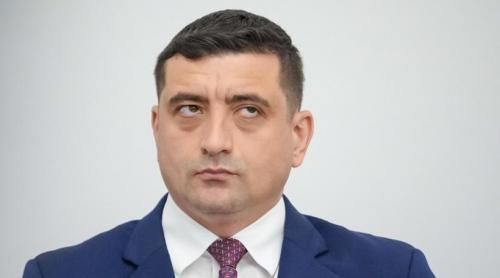
Romania and Ukraine were locked for the past six years in negotiations which led to no conclusion regarding the partitioning of the sea-bed of the Black Sea they are both bordering. The stakes are high, since rich reserves of gas were discovered to lie under the sea-bed.
On 15 August Romania filed an official request to the International Court of Justice to rule on the issue, but the decision to pursue a solution in court was taken last year, when the Social Democrats were ruling and SDP executive president Adrian Nastase was Prime Minister.
Jurnalul National interviewed Nastase on this issue.
Jurnalul National: How do you comment the move of the current Executive?
Adrian Nastase: We support the move to refer the issue to the ICJ. As you well know, this decision was taken back in September 2004 by our own sSDPt Government, and was re-enforced by a decision taken this spring by the Supreme Council for the Defense of the Nation. Itâs good that things are moving now, particularly since at the beginning of the year it looked as if they were stalled.
JN: Referring the issue to the ICJ means the Romanian diplomacy failed to achieve its goals?
AN: The diplomacy never fails until negotiations are formally closed with inconclusive results. The negotiations continue in this case too, in spite of referring the issue to the international court in The Hague, as the practice in other countries showed it too.
JN: Which was in fact the dead-end which prompted Romania to refer the issue to the ICJ?
AN: It was impossible to come to a common ground in the past six years of negotiations. Both parties held their ground on the issue of partitioning the sea-bed in which the Serpentsâ Island sstanding at the mouth of the Danube Delta, trans. notet status was crucial. Ukraine maintained the island snow under its de facto possession, trans. notet was an island proper, with the implication that the border line should recognize this, thus carving a bigger share of the sea-bed for Ukraine and into what Romania thinks it is its own sea-bed. Romania maintained exactly the opposite: that the Serpentsâ Island was a rock, unable to sustain life on its own, hence with no right to territorial waters of its own around it, as supported by international law.
JN: Still, last year the testy issues between the two countries were many more: the partitioning of the sea-bed, but also the status of the Romanian minority in Ukraine, or the carving of a channel by Ukraine, into the Danube Delta...
AN: Sure, the regime in Kiev was a different one, and yet, the problems we had back then are the problems we have now with Ukraine: the Bistroe Channel, the Romanian minority the past Romanian investment at Krivoi Rog. But the decision to refer to the ICJ the issue of the maritime border line and the partitioning of the sea-bed was taken after careful consideration of the national interest. This is one of those issues, highly charged politically, which have so strong economic implications that following the national interest becomes of paramount importance to all governments, irrespective the party they are supported by.
JN: When the political regime in Kiev changed there was hope the negotiations will be put back on the right track. How much is up to personal relationships for this type of negotiations to proceed successfully?
AN: Good personal relations undoubtedly matter but most important in this case was for the result to coincide with the national interest, and be in line with the international law. Referring the issue to the ICJ will achieve that.
JN: Do you trust the court in The Hague to achieve these results? Is it a good solution for Romania?
AN: Yes, I fully trust the ICJ as an institution commanding great authority in the realm of international law. And I state this as a professor of international law, not only as former PM. The rulings the ICJ arrives at are always balanced and taking into account the interests of all parties implied. Furthermore, its judges are true professionals, with a wide experience in solving territorial disputes and maritime beds in the past. Also, the ruling will be passed within a time limit, which is not the case of negotiations that could go on forever. A decision passed by the ICJ also has the advantage to be mandatory to all parties. The ICJ ruling will also take out of our bilateral relations with Ukraine the heated political argument. At the same time, a country the size of Romania is better off when taking advantage of the framework of international rules and regulations and of the organizations which enforce them. This was the way to go when we solved between 2001 and 2003 the contentious issue of the Law for the Hungarians outside Hungary, which the government in Budapest wanted to pass. At that time we acted through European and international organizations like the Commission in Venice, the High Commission for National Minorities of the OSCE, the Parliamentary Assembly of the Council of Europe and the European Commission. As a result of our diplomatic efforts back then, we now enjoy a perfect neighborly relation with Hungary and solved a potentially contentious issue. We opted for the court in The Hague to rule in this Ukraine-Romania border issue because this would also reinforce a higher standing for Romania as a member of the international community.
JN: The process for the court in The Hague is pretty lengthy. Is it true that it could take even up to four years?
AN: One cannot assess for sure, but the average length of a trial before this court is indeed four years.
Translated By Anca Paduraru
Citește pe Antena3.ro


















